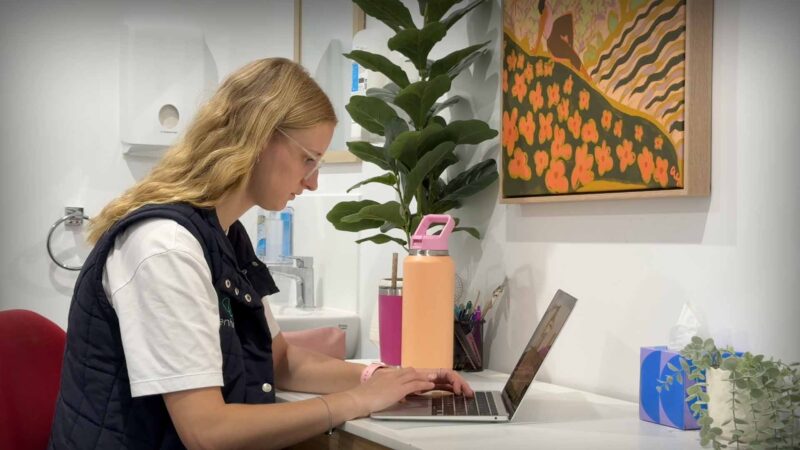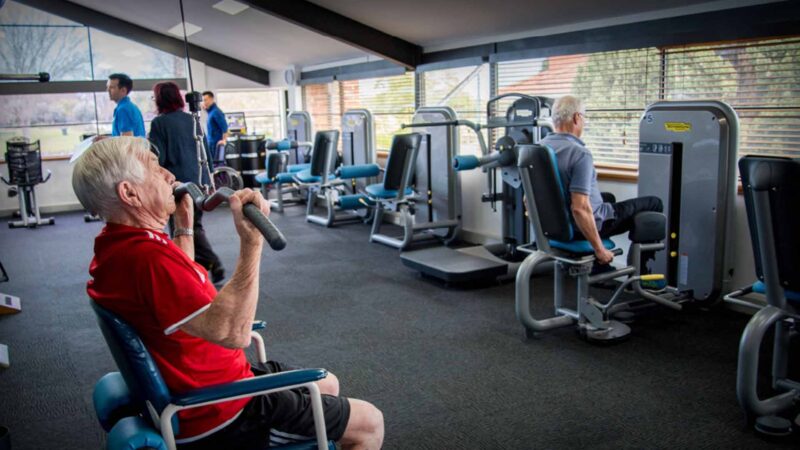PARAMEDICS, RESEARCHERS AND WORKFORCE ANALYSTS GATHER LANDMARK PARAMEDICINE WORKFORCE DATASET Inaugural report into Australasian Paramedicine Workforce Survey report to aid workforce planning
INTERVIEWS
Dr Liz Thyer, Associate Professor in Paramedicine
School of Health Sciences, Western Sydney University &
Chief Investigator Australasian Paramedicine Workforce Survey Report 2023-2024
Alecka Miles, Community Paramedic, Dianella Family Medical Centre (WA)
Lecturer Edith Cowan University &
PhD Student Western Sydney University
John Bruning, Chief Executive Officer
Australasian College of Paramedicine
SEGMENT
Filmed in Campbelltown (NSW), Perth & Sydney | December 2024
In a milestone for paramedicine, the Australasian College of Paramedicine earlier this year released the first report of a landmark three-year study identifying and exploring trends that affect the Australasian paramedicine workforce.
The inaugural Australasian Paramedicine Workforce Survey report 2023-24 explores the demographic, career trajectory, work motivations and conditions for those working in clinical, management and educational capacities within the paramedicine workforce of Australia and Aotearoa New Zealand.
The survey findings reveal new insights into the current and future state of the paramedicine workforce across Australia and Aotearoa New Zealand and provide governments and decision-makers with crucial knowledge and evidence to better inform workforce planning.
In 2022, the College commissioned Associate Professor Liz Thyer, from Western Sydney University (WSU), as Chief Investigator to lead a team of sixteen academics and researchers from WSU, Edith Cowan University (ECU) and Auckland University of Technology (AUT). Alecka Miles (ECU) and Dr Graham Howie (AUT) led the teams from their respective universities.
Australian Health Journal spoke with Associate Professor Liz Thyer, Alecka Miles and John Bruning, Chief Executive Officer for the Australasian College of Paramedicine about the survey and the inaugural report.
Assoc Prof Liz Thyer said: “Our team includes paramedics, researchers and workforce analysts enabling us to develop a survey that gets to the core of the paramedic profession. These insights can then be used to make a better, well-supported workforce for current paramedics and those studying to enter the profession.”
The data contained in this report will assist the College, and the broader paramedicine healthcare sector, in workforce planning. As health reform across Australasia looks to more broadly engage paramedics in multidisciplinary team-based models, the survey findings aim to support all employers of paramedics in better understanding the needs of their workforce, ultimately enhancing the quality of care provided to communities across Australia and Aotearoa New Zealand.
Also captured in this segment from the College’s ACPIC conference in Sydney in September 2024 include Lucy Oatley ASM (Conference Master of Ceremonies), Intensive Care Flight Paramedic and Jemma Altmeier, Advocacy and Government Relations Manager, Australasian College of Paramedicine.
You Might also like
-
Rural allied health mentorship program creates opportunities for students and practice
Melanie Roll, a director and physiotherapist at Gen Health Hamilton, is dedicated to nurturing the next generation of allied health professionals. Gen Health’s support begins with a work experience program for local secondary school students, where they can observe a variety of health services and participate in an annual careers night to explore allied health career pathways.
Upon moving to tertiary education, students are offered placements through a five-week program designed to transition them from observation to supervised practice and ultimately to seeing their own patients. In their final study year, they can apply for the mentorship program, which aids the transition into private practice.
-
Metabolic health expert talks about healthy ageing
David Beard is a highly experienced Exercise Physiologist with a specialisation in metabolic health and healthy aging. He has spent over 40 years in this profession, even before exercise physiology was formally recognised as a discipline. His extensive background includes over a decade of working in aged care and a strong focus on adult health and fitness. David has authored a book on healthy aging and dedicated the last 10 to 12 years to advancing his expertise in metabolic health issues such as diabetes, weight loss, and inflammatory conditions. He is a co-owner of HFRC in Nedlands, Western Australia, where he has worked for nearly a decade.
-
Confronting picture of growing women’s health crisis in uterine cancers
Uterine cancers have become Australia’s fastest-growing women’s cancer, with incidence doubling over the past 25 years and projected to continue to surge. Without immediate action, more than 44,000 women are expected to be diagnosed by 2035, and 8,900 will lose their lives to the disease.
Released November 2025, Australia’s first State of the Nation: Uterine Cancers in Australia 2025 report by the Australia New Zealand Gynaecological Oncology Group (ANZGOG), reveals a confronting picture of a growing women’s health crisis that has gone largely unseen and one that now requires immediate, coordinated national action.



